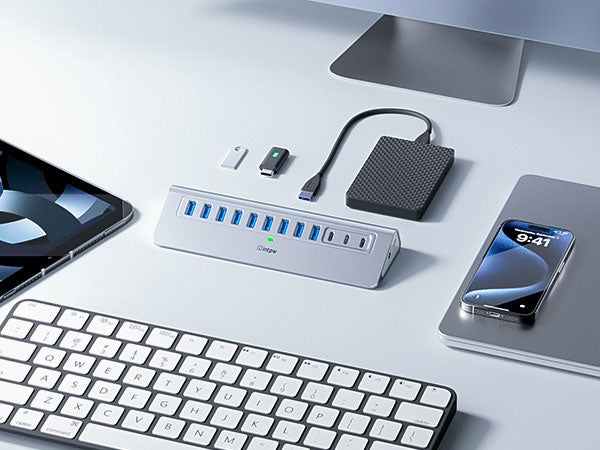
USB Hub Myths That Brands Won’t Tell You
, by USintpw, 2 min reading time

, by USintpw, 2 min reading time
Are USB hubs just a rip-off? Do high-quality, reliable USB hubs even exist? It seems there's still some confusion surrounding USB hubs, with some folks even questioning their reliability. It's time to clear up the mystery.
Many users believe that connecting devices through a USB hub inherently reduces performance, leading to slower data transfer rates or increased latency. In reality, the performance depends on the hub's specifications and the devices connected. High-quality hubs that adhere to the latest USB standards can handle multiple devices efficiently without noticeable slowdowns.
It's a common assumption that all USB hubs offer identical functionality. However, hubs vary significantly in terms of power delivery, data transfer speeds, and build quality. Choosing the right type—powered or unpowered—based on your specific needs is crucial for optimal performance.
Some users fear that using a USB hub might harm their peripherals or computers. While low-quality hubs lacking proper power regulation can pose risks, reputable hubs are designed with safety features to protect connected devices from power surges or data errors.
The notion that a hub with more ports will always perform better is misleading. Overloading a hub beyond its capacity can lead to power distribution issues and decreased performance. It's essential to balance the number of connected devices with the hub's power and data handling capabilities.
While data transfer is a primary function, modern USB hubs offer additional features such as charging capabilities, network connectivity, and support for various peripherals, enhancing overall productivity and convenience.

Subscribe to our emails